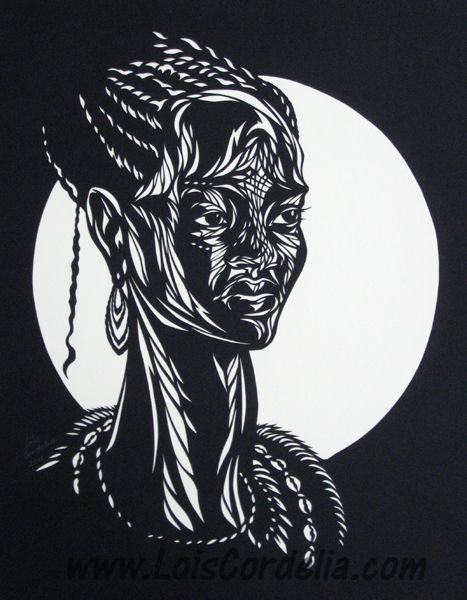











 |
"Nyabinghi"
(Spelling
variations are common: Nyahbinghi, Nyabingi, etc)
The word 'Nyabinghi' has a somewhat complicated history.
It was originally associated with an uprising against
White European colonialism in southwestern Uganda during
the mid to late nineteenth century and the early part of
the twentieth.

The movement was mainly led by a number of women,
including a charismatic healer called Muhumusa,
who was much feared. She was believed to be possessed* by
the spirit of a legendary Amazon Queen, Nyabinghi.
Muhumusa not only inspired a vast popular following, but
also organised military action against the German
colonialists. The Nyabinghi movement was subsequently
condemned by the British as 'witchcraft', and Muhumusa
was captured in 1913, though the uprisings continued, led
by other women and occasionally men who had become
similarly possessed by Nyabinghi's spirit. The Ugandan
movement was eventually subdued as women's powers were
crushed by the authorities.
But such brave resistance could not be so easily
forgotten. It has lived on in many ways, having much
influence on the Rastafarian tradition, in which
so-called Nyabinghi chants are very
popular and usually form the basis of the annual Grounation celebrations. In Jamaican parlance, the
name Nyabinghi has come to mean 'Death to
Black and White oppressors'.
Related Links:
Nyabinghi
Chants
*To this day, spirit possession is a commonly
occurring phenomenon of many African indigenous cultures.
The spirit of a deceased ancestor may possess a man or
more usually a woman who acts as mediator. This role
often seems to confer a somewhat elevated position of
social esteem and significance on its bearer, since it is
recognised that she or he has the privilege of contact
with the spirit world. This may explain why many
mediators are women, who otherwise usually remain
subordinate to men. In Zimbabwe, a person possessed by a
spirit is termed a N'anga
or Svikiro, variously
translated as 'traditional healer', 'witch doctor',
'spirit medium', 'diviner' or 'herbalist'.
Back to 'Key Biblical Concepts
In Rasta Reggae Lyrics' page

|

